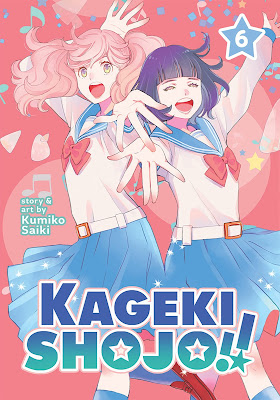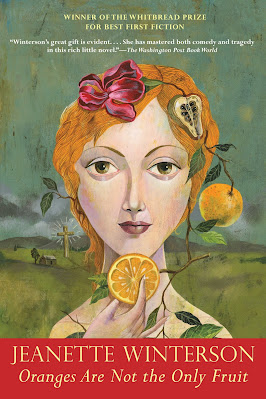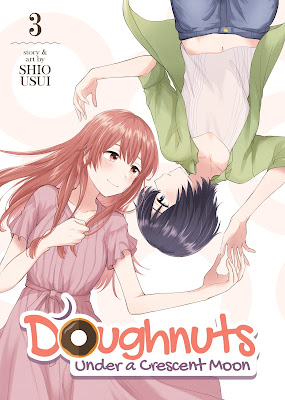SPOILER WARNING - if you haven't seen "Thor: Love and Thunder" then you shouldn't read this post because I will spoil the very ending of the movie (that's the point of this post basically).
I had the chance to watch "Thor: Love and Thunder" on Thursday night (it was a nice surprise, after work, and after electrolysis, I went to the mall and then a movie with my daughter and niece and stayed out late even though I had work the next morning! Look at me livin' it up!).
Please note that I am not a Marvel fan. Growing up in the 80s and 90s, I was a DC comics fan, never a Marvel fan. And I will still admit that overall I like DC movies better even though they have mostly been trash lately (I did prefer the Snyder Cut of the Justice League much more - but not in the same toxic way as the fandom that demanded it's release). I think I have only seen the following Marvel movies: Iron Man 1 and 2, Captain America 1 and 2, Guardians of the Galaxy 1 and 2 (love em), Thor - all 4! Love me some Chris Hemsworth; Natalie Portman for the win! And I think I saw the first Avengers movie. I've also seen many of the non-Disney Marvel movies like the Sam Raimi Spiderman trilogy, the X-men triology, some of the First Class movies, and the two Andrew Garfield Spiderman movies. But given that there are like thousands more, it's fair to say that I don't really know (or care) much about the Marvel Cinematic Universe. I say that so you better understand where I'm coming from with what I am about to say.
FINAL SPOILER REMINDER - I will ruin the ending of Thor 4 if you haven't seen it yet. YOU'VE BEEN WARNED
Aside from being a fan of Chris and Natalie, I like that the Thor movies have more or less been able to be enjoyed outside of the main Marvel continuity (obviously they are linked, but they stand on their own pretty well). I'm not going to review "Thor: Love and Thunder" here, but overall I liked it a lot, although I thought Chris's overacting in the first half was just a bit over the top (but forgivable). I really enjoyed that it blended camp with high-quality moviemaking in a way that most campy movies don't. I also loved how Stormbreaker was anthropomorphized and the very brief moment when the camera is framed on Chris and we just see Stormbreaker starting to come in from camera right in a nod to it's jealousy was so perfectly animated. The pace of Stormbreaker's movement, the only slight entrance into the frame, it shows just how powerful animation can be when executed well. It completely expresses emotion from an inanimate object! Definitely my favorite moment in the movie (I looked and I couldn't find a GIF and could only find phone caps of foreign language ones on youtube). So I'm not going to review the movie more than this, but suffice it to say I enjoyed it a lot (and found myself genuinely laughing out loud constantly at it's very dry humor).
What I do want to talk about is the ending. And I want to talk about it from a literary standpoint, which is why I prefaced all this with the fact that I'm not a Marvel movie fan. I am not going to talk about how the ending that DID happen might have been necessary for the future things it sets up in the MCU (because I don't care about the MCU). I DO want to talk about why the ending didn't quite achieve as much as it could have from a literary standpoint and what I (and my daughter and niece independently) thought the better ending would have been if connections to future projects weren't part of the equation (and it is worth noting that I am okay with the fact that movie executives have to make money. So I am not blaming them that this was the ending they chose because I get that they need to keep this enterprise going. I just get to talk about what I wish it had been if that wasn't part of their need set).
Here's the actual ending: Gorr, who lost his daughter, begged for help from a god who laughed at him, slaughtered that god, then starts slaughtering all gods in an attempt to find "Eternity" who will grant his wish, actually makes it to the eternal and basically defeats both Thors to get there. But there is a final moment when Chris Thor could stop him, but that means leaving Natalie Thor to die alone. And so Chris Thor decides to be with Natalie even though he knows that part of Gorr's wish will be to destroy all gods and so Chris Thor will end up dying with Natalie Thor. The Thors urge him to "choose love." It's unclear if Gorr's original wish was to kill all gods, bring back his daughter, or both, but it is implied that his original wish might have been just to kill all gods. But instead, seeing the love between the Thors, Gorr choses to bring back his daughter and leave the gods alive. However, although Chris Thor is left alive, Natalie Thor still dies of her cancer. Then Chris Thor adopts Gorr's daughter as Gorr dies from the influence of the sword (or whatever) and Thor mourns the loss of Natalie by becoming a good father to Gorr's daughter. (Which is an admittedly sweat/funny scene and the young actress who plays Gorr's daughter is brilliant).
This is a perfectly fine ending, satisfying enough, and apparently done to fit with the larger marvel continuity if the end credit's scene is any indication. But it could have been even better if we don't care about the MCU's journey, and only care about quality writing. Here's how and why:
It comes down to the journey Gorr takes and who Gorr is in his core being. The movie starts with Gorr and his daughters as the last survivors in an environmental wasteland. He is doing everything he can to keep her alive, sheltering her with his body from the elements, but she passes away. He buries her and cries over her body, and lays himself on top to die. But then he hears that god killing sword calling to him. Gorr stumbles on the oasis, finds his god, makes his case, and his god laughs at him. The sword comes to his hand and he kills the god who cares so little for the pain and suffering of Gorr. Gorr's feeling in that moment is completely understandable and the sword is drawn to him because of that emotion. It is then explained that the sword will continue corrupting him and it helps us understand why Gorr goes from being momentarily enraged at his unsympathetic god, to wanting all gods dead - a dramatic personality shift from the loving father.
But Gorr is fundamentally depicted, at all times in the movie really, as a sympathetic villain. His pain comes from the unnecessary death of his daughter. He is a devoted father. And his pain was laughed at by the one being who could help. Then the sword further messes him up. So this is a perfect set-up for a redemptive ending. Not to excuse the deaths Gorr has caused, but to resolve his journey and restore him to the devoted father, and presumably kind person, he originally was.
And in many ways, that's what the movie does. He stops killing gods and he brings his daughter back to life. He choses love. But he could have chosen love in an even bigger way. A way that is restorative and reparative, rather than somewhat selfish. Framed another way, the actual ending has Gorr allow one more god to die (Natalie Thor) and brings back his dead child who will now be a fatherless orphan.
What if, and here's the point of this belabored blog post, Gorr sees Chris Thor's willingness to die with Natalie Thor rather than stopping Gorr and so Gorr choses to use his wish not on himself (bringing back his already dead daughter) but instead to preserve Natalie Thor's life. What if he saves a god and saves their love showing that he has truly come full circle and remembering what his love meant to him and that he has the power in that moment to give that to another pair?
Chris Thor, when given the opportunity to finally stop Gorr, recognizes that doing so means that Natalie Thor will die alone. By going to Natalie Thor, Chris Thor is signing his and every other god's death warrant, but believes that being there in Natalie Thor's final moments, that intimate kindness, is more important. In watching this self-less act of kindness and love towards Natalie, Gorr is urged to chose love. Again, it is unclear if his original wish would have been ONLY to kill all the gods and he switches it to bring his daughter back, or if both were part of the original wish and he just leaves the god death part out. I suppose the stronger interpretation of the actual ending has him using his wish for vengeance alone and killing all the gods, but the Thors' love for each other convinces him to instead grant life in the form of his daughter. I just think that being self-less and choosing love and life in the form of Natalie Thor living rather than expending it on his own desire for his daughter to come back from the dead would have been even more redemptive. It also, as I said above, would have been reparative: he had killed all these gods, and now he can grant a god life. Instead, he spends it on his daughter while allowing another god to die.
So what do you think? Would it have been worth sacrificing future MCU plans to have Gorr save Natalie Thor instead of resurrecting his own daughter?
✩🚺
Please legitimately purchase or borrow manga and anime. Never read scanlations or watch fansubs. Those rob the creators of the income they need to survive and reduce the chance of manga and anime being legitimately released in English.
All comments are moderated by a real person who only checks them once a day. Therefore, comments may take a while before they show up. Thanks for understanding. It's how we keep this a community of lovingkindness.




